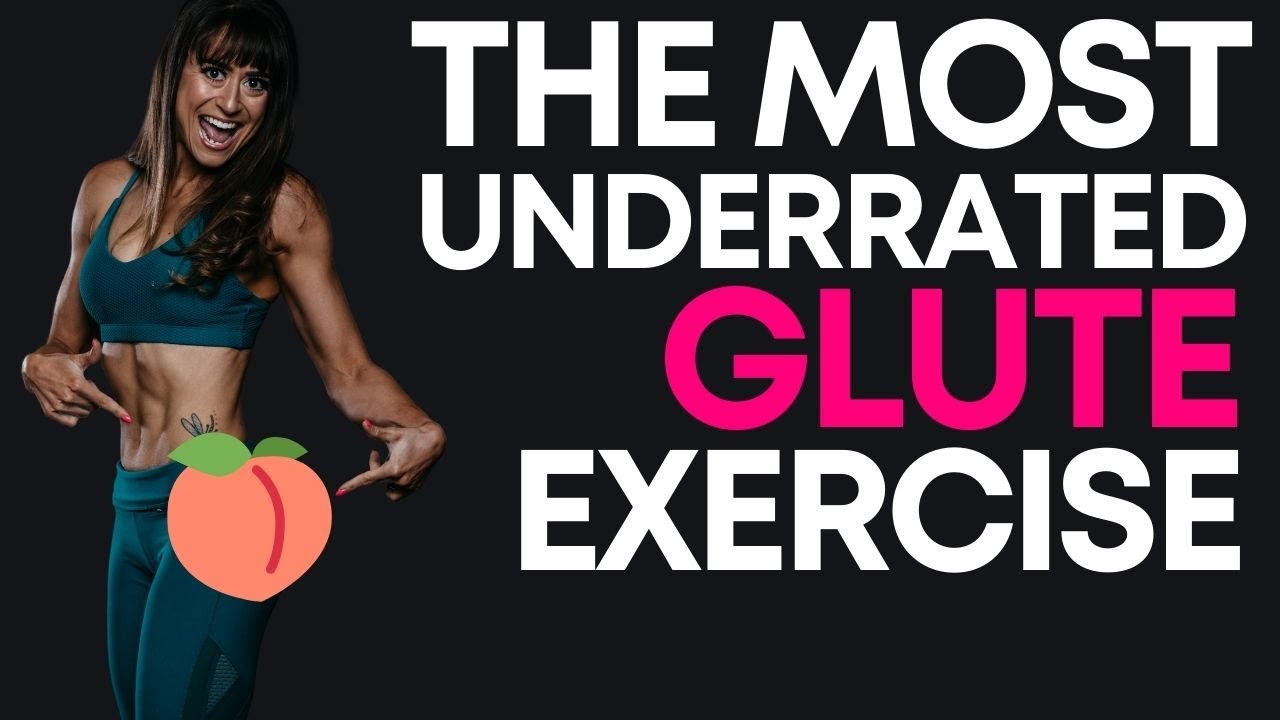The stronger your mind-body connection is?
The more you can lift, the faster you can run and the further you can cycle!
Basically the STRONGER YOU ARE!
Strength is not just about brute force but also about neuromuscular efficiency – how quickly can you recruit the CORRECT muscles to perform a movement and produce force.
That’s why it is key we include exercises to really improve that mind-body connection and make sure we are able to engage the correct muscles whenever we need.
Because as much as we focus on form, proper form does NOT always mean you’re engaging the correct muscles.
Actually often the more experienced a lifter you are and the more athletic you are, the more you can mimic a proper looking movement pattern while compensating and recruiting the incorrect muscles to do so.
This can not only result in injury but often holds us back from lifting as much as we truly can.
It prevents us from being as strong as possible because we aren’t using muscles efficiently together. We aren’t making the correct muscles pull their own weight.
That’s why you need to include some isolation moves to activate those underactive muscles and make sure you’re engaging the correct muscles at the proper times.
One muscle that often needs to be the focus of our activation work is our GLUTES.
Our glutes are commonly underactive due to our modern lifestyle.
So focused activation work can help us improve our mind-body connection to better recruit our glutes during compound lifts and when we run or cycle.
One of my favorite moves, and a very basic and often underutilized move, is the Single Leg Bent-Knee Reverse Hyper.
This move is fundamental if you want to improve your hip extension and focus on isolating those glutes.
And it’s a really great way to test if your hamstrings tend to want to take over and compensate for your glutes.
Often our hamstrings can become synergistically dominant for underactive glutes and that can result in hamstrings strains, lower back, hip and knee pain.
So if you tend to feel your hamstrings even during moves like glute bridges? You need to give this reverse hyper variation a try.
To first test your glute activation, lie face down on the ground. You can relax your chin on your hands as you straighten both legs out. Then bend one knee to about 90 degrees. Flex that foot. Do not curl the heel in toward your butt as this will engage your hamstrings.
Then drive your heel toward the ceiling and extend your hip.
What do you feel firing first? Do you feel your hamstring first or your glute?
Do you feel both? Or can you just isolate your glute?
If you can just isolate your glute fabulous! Do 15-20 reps and pause at the top to really establish that mind-body connection and even get a little pump going.
If you can’t feel your glutes, try adjusting how you’re cueing and performing the move.
Here are a few tweaks to try.
#1: Focus on driving your hip down into the ground as you drive the heel back so you don’t rotate open. Think about almost pushing your hip bone down into the ground instead of just lifting up.
#2: Think about STOPPING the lift with your glute over just trying to lift up higher. You want to focus on that glute engagement over the movement itself.
#3: Kick just slightly out as you lift. Remember not to curl your heel in toward your butt. Our hamstrings are worked by that knee flexion so avoiding it can help. However, going too straight with your leg can also make it harder for some to focus on their glutes.
#4: Slightly abduct your knee or move it out to the side before you lift. This can better engage the glute medius to help engage that glute max. Just be careful you don’t rotate your hip open. Just slightly move the knee out to the side.
Try one of these tweaks at a time to see what helps. You may even find you need to combine all the cues to get that glute firing without the hamstring trying to take over.
As silly as it may seem, sometimes just changing how we cue ourselves to perform a movement with a very slight adjustment can really help us better establish that mind-body connection when we’ve struggled in the past.
Just don’t rush through the movement. Pause and assess. Be intentional with the exercise over just trying to get through the reps.
Doing the “right moves” without feeling the correct muscles working won’t get you the results you want.
Focus on activating your glutes.
SUMMARY:
Use this underrated glute isolation move as both an activation exercise but also a test of hamstring compensation. It is a great way to make sure your hamstrings aren’t trying to take over and work when your glutes truly should be.
Be conscious of what you feel working during your workouts and do not simply go through the motions.
The more we can truly create proper recruitment patterns and use the correct muscles efficiently and effectively, the stronger we will be.
Sometimes we need to take things back to basics to get results.
We are never above those simple fundamentals!
Working to improve your glute activation?
Check out my Booty Burner Program!
–> LEARN MORE



Great information thank you!
As usual, such useful info to activate muscle in a way I would never had I thought.
Thanks for this video….so helpful! 🙂
Your videos were an eye opener….!!! I bought the course and going through it for the third time now…love how I got those glutes working and building up since the first session. Thank you so much!
Great information and explanation.
Argh I can’t even do 1 with hamstring cramping!
So glad it helps Gregory!
Glad it helps Cara!
So glad they helped and so did the program! The best rehab is prehab so keep it up!
Thanks Lynne!
Some glute activation work and hamstring foam rolling are key for you then! https://redefiningstrength.com/the-real-reason-your-hamstrings-are-tight/
Great suggestions’
This is exactly the problem I’m struggling with! Thank you for this info!!
Glad they help!
So glad the blog helps Darci!